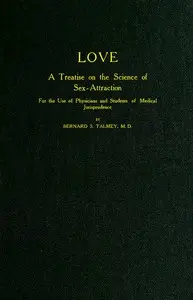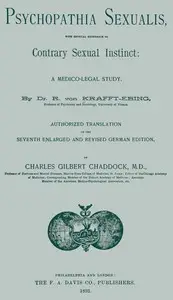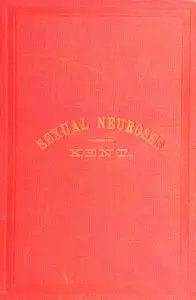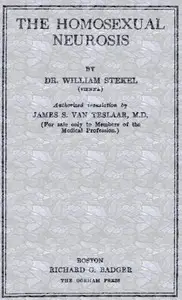"Bi-sexual Love; the Homosexual Neurosis" by Wilhelm Stekel is an early 20th-century scientific examination of sexuality. This book explores bisexuality and the mental health side of homosexuality. Using case studies and psychoanalysis, the book tries to explain the complexities of sexual desire with attention paid to how ideas factor in. The author starts by addressing common misunderstandings about what causes homosexuality, like the false idea that masturbation is responsible. The author mentions others in the field like Krafft-Ebing and Moll, while questioning their views on whether homosexuality is genetic or learned. He argues that everyone is naturally bisexual and looks at the mental issues that affect sexual preference, claiming that suppressing desires causes mental health issues. This introduction leads to a closer look at how sexuality, mental health, and personal growth are connected.

Bi-sexual love; the homosexual neurosis
By Wilhelm Stekel
Explore a groundbreaking study of hidden desires, suppressed feelings, and the psychological struggles of identity, written in a time of societal change.
Summary
About the AuthorWilhelm Stekel was an Austrian physician and psychologist, who became one of Sigmund Freud's earliest followers, and was once described as "Freud's most distinguished pupil". According to Ernest Jones, "Stekel may be accorded the honour, together with Freud, of having founded the first psycho-analytic society". However, a phrase used by Freud in a letter to Stekel, "the Psychological Society founded by you", suggests that the initiative was entirely Stekel's. Jones also wrote of Stekel that he was "a naturally gifted psychologist with an unusual flair for detecting repressed material". Freud and Stekel later had a falling-out, with Freud announcing in November 1912 that "Stekel is going his own way". A letter from Freud to Stekel dated January 1924 indicates that the falling out was on interpersonal rather than theoretical grounds, and that at some point Freud developed a low opinion of his former associate. He wrote: "I...contradict your often repeated assertion that you were rejected by me on account of scientific differences. This sounds quite good in public but it doesn't correspond with the truth. It was exclusively your personal qualities—usually described as character and behavior—which made collaboration with you impossible for my friends and myself." Stekel's works are translated and published in many languages.
Wilhelm Stekel was an Austrian physician and psychologist, who became one of Sigmund Freud's earliest followers, and was once described as "Freud's most distinguished pupil". According to Ernest Jones, "Stekel may be accorded the honour, together with Freud, of having founded the first psycho-analytic society". However, a phrase used by Freud in a letter to Stekel, "the Psychological Society founded by you", suggests that the initiative was entirely Stekel's. Jones also wrote of Stekel that he was "a naturally gifted psychologist with an unusual flair for detecting repressed material". Freud and Stekel later had a falling-out, with Freud announcing in November 1912 that "Stekel is going his own way". A letter from Freud to Stekel dated January 1924 indicates that the falling out was on interpersonal rather than theoretical grounds, and that at some point Freud developed a low opinion of his former associate. He wrote: "I...contradict your often repeated assertion that you were rejected by me on account of scientific differences. This sounds quite good in public but it doesn't correspond with the truth. It was exclusively your personal qualities—usually described as character and behavior—which made collaboration with you impossible for my friends and myself." Stekel's works are translated and published in many languages.















